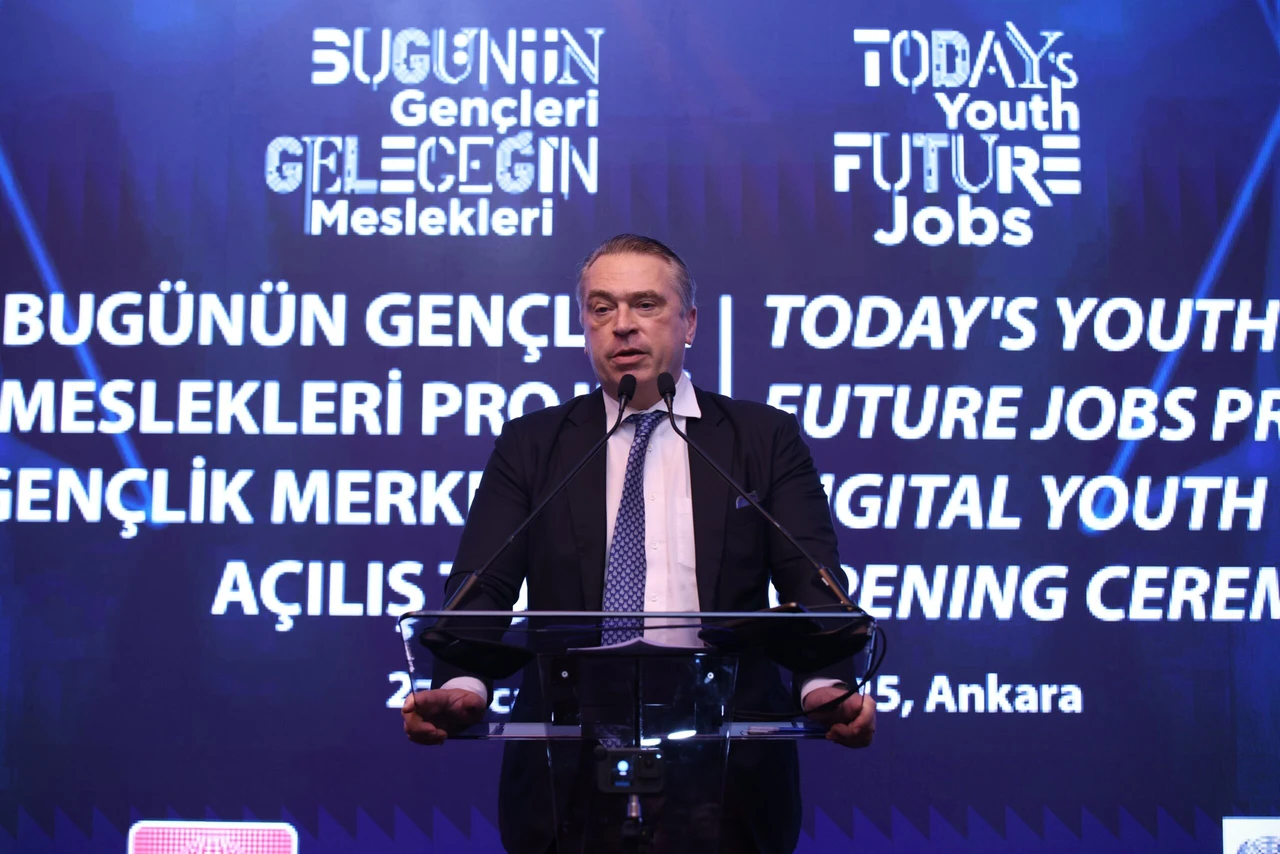Assad involved in illegal excavations, former head of Aleppo National Museum tells Türkiye Today
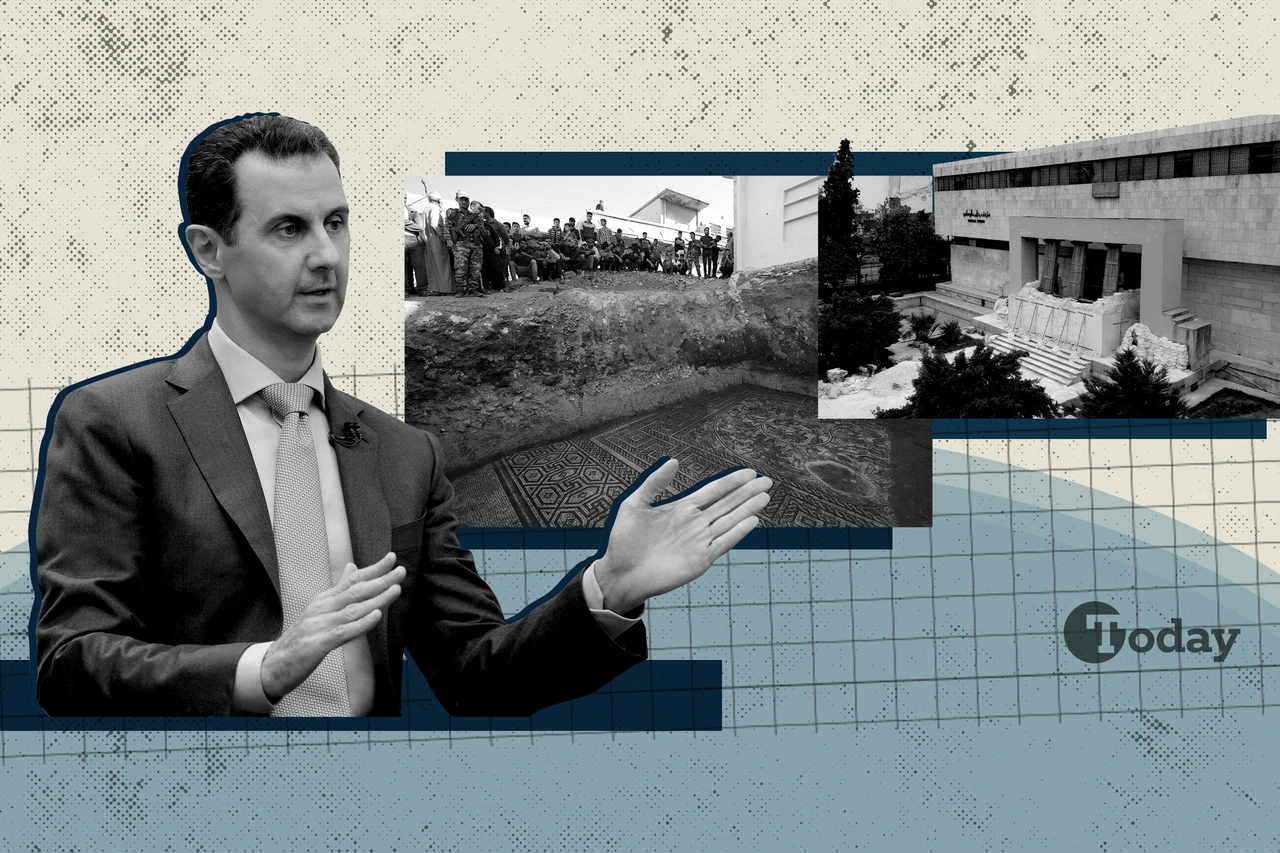 Collage of photos featuring Bashar al-Assad, Aleppo National Museum, and the Roman mosaic discovered in Rastan, Syria, in 2022, December 9, 2024. (Photo collage by Tugce Atmaca/Türkiye Today)
Collage of photos featuring Bashar al-Assad, Aleppo National Museum, and the Roman mosaic discovered in Rastan, Syria, in 2022, December 9, 2024. (Photo collage by Tugce Atmaca/Türkiye Today)
Syria, since the outbreak of the civil war in 2011, has faced not only a political crisis but also a profound loss of its thousands of years of cultural heritage. The destruction and losses in Aleppo and other Syrian cities point to a cultural as well as a physical catastrophe.
As Türkiye Today, we asked Youssef Kanjou, former director of the Aleppo National Museum and now a researcher at the University of Tübingen in Germany, several important questions about the effects of the war and the preservation of cultural heritage.
Here is our interview, shedding light on the challenges of museum work, the protection of artifacts, and the safeguarding of cultural identity.
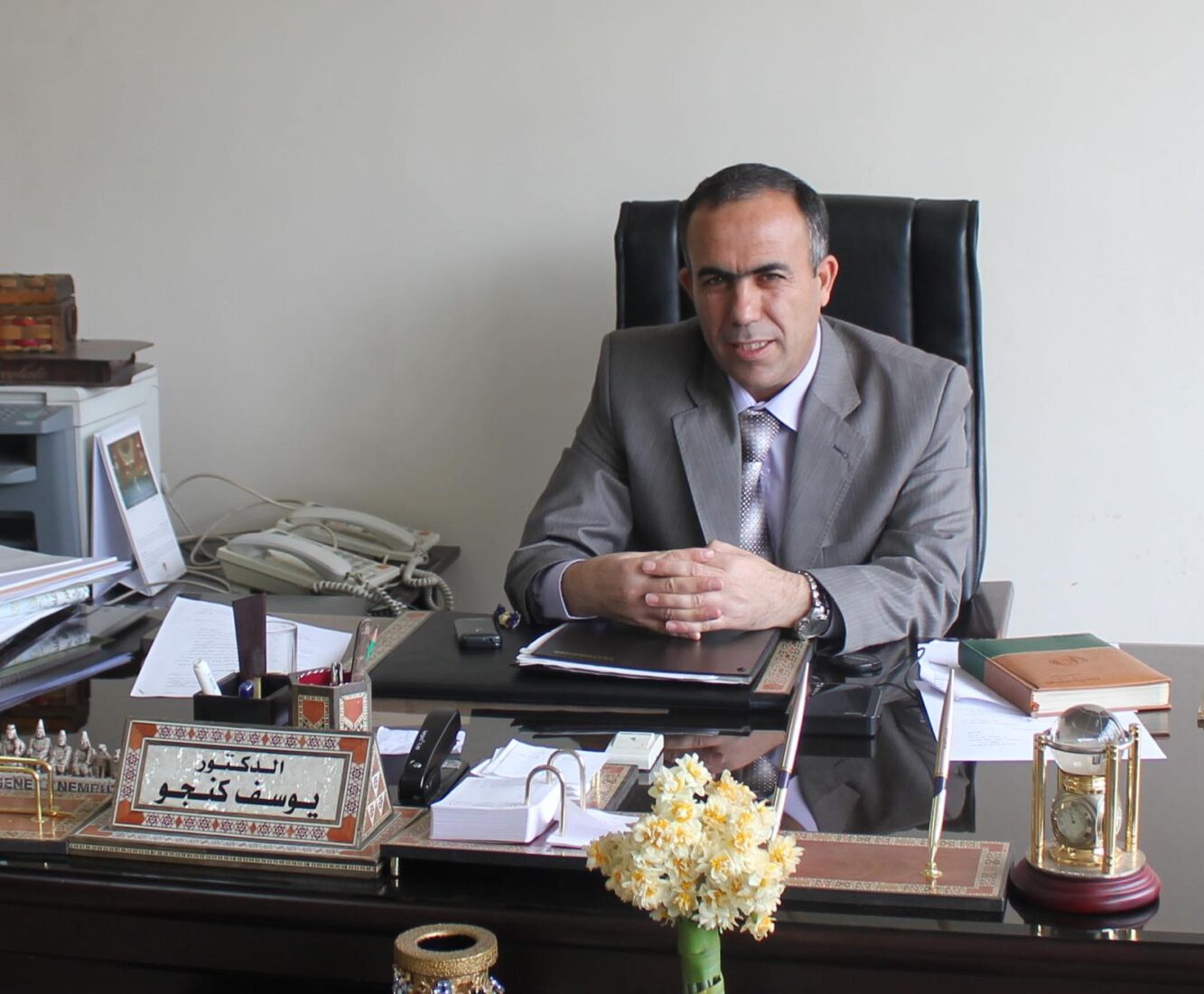
1. What do you think the future holds for the Aleppo National Museum and other archaeological sites like the National Museum of Damascus, following the departure of Bashar al-Assad from the country?
In my opinion, the future will be very promising for Syrian museums, particularly the national museums. During Assad’s regime, there was little economic support from the government, and staffing was limited. To work at a museum, one had to be loyal to the regime.
Furthermore, museums often followed the regime’s political directives rather than the recommendations of experts or the needs of the Syrian people.
In a new era for Syria, we hope that museums will serve all Syrians and remain free from political or religious influences.
As we have observed, all Syrian museums are currently safe, with no reports of looting or attacks. From my experience, Syrians deeply cherish their museums, as they represent an integral part of our identity.
2. What can you tell us about the damages caused to cultural sites, museums, and archaeological areas during the Syrian Civil War? How significant was the destruction?
The damage to Syria’s cultural heritage during the civil war was immense, and we lost several significant sites. However, many sites remain intact and can still be studied to showcase our heritage. Tragically, some of the most important archaeological sites, such as Palmyra, Ebla and Mari, suffered severe damage because they were used as military bases during the conflict. Thankfully, the damage affected parts of these sites, not their entirety.
Some museums were also damaged, notably the Raqqa Museum and the Palmyra Museum. The situation in these cases was worsened by Daesh, which looted and destroyed many artifacts. Unfortunately, the Syrian authorities must also bear some responsibility, as they failed to take adequate measures to safeguard these collections before the war began.
On a more positive note, the Aleppo National Museum was well protected and, as of now, has not suffered significant damage or theft. This is remarkable, given the city’s precarious situation during more than four years of intense conflict.
How significant was the destruction?
The destruction was highly significant. When we lose any part of our heritage, it is an irreversible loss. These artifacts and sites cannot be replaced or restored to their original state. Each object holds cultural and historical significance, and the loss of even one piece diminishes our ability to understand and document history. The damage caused by illegal excavations, looting, and the destruction of historical buildings during the war only compounds this tragedy.
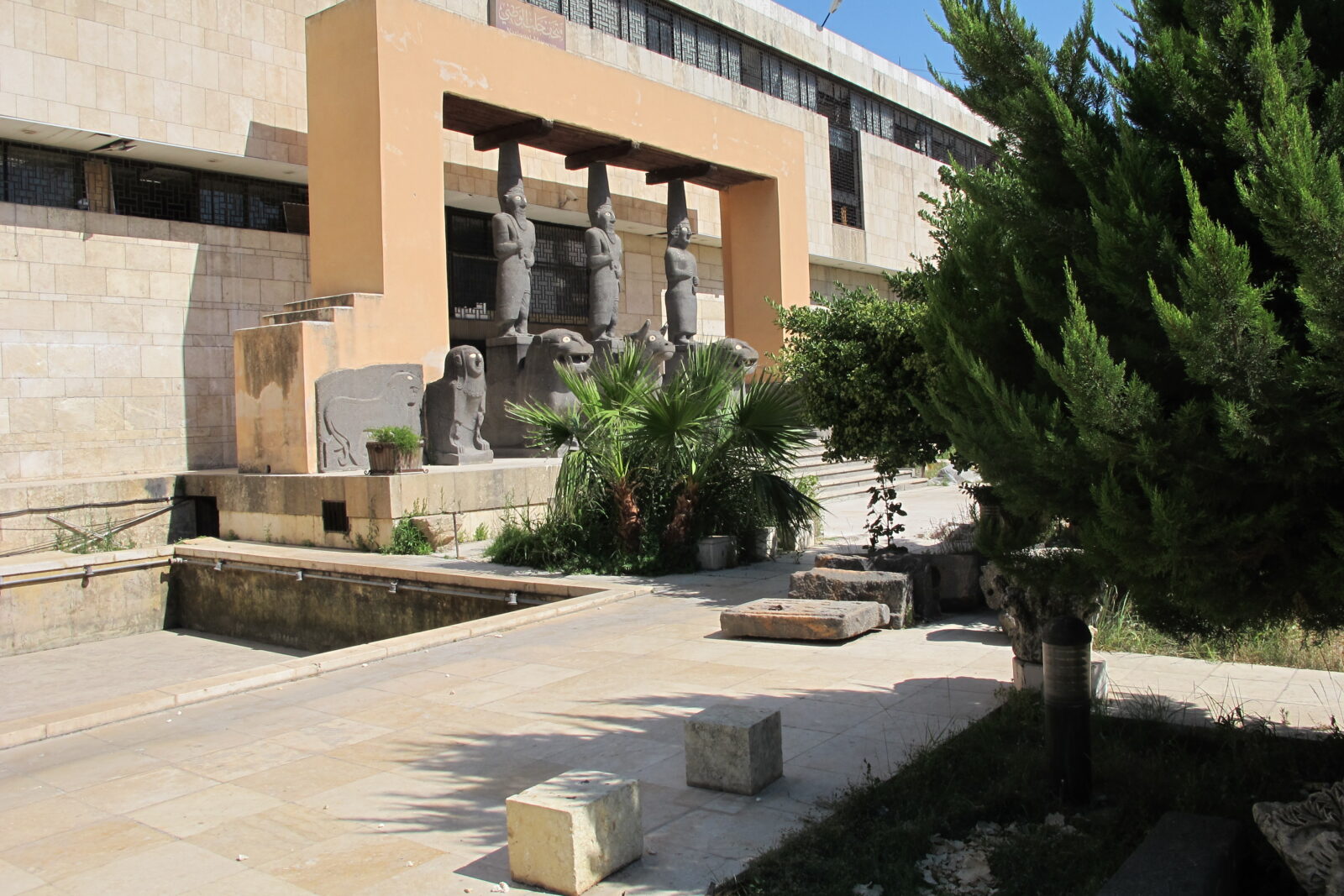

3. There have been reports suggesting that Assad and his family have been involved in looting museum artifacts. What is your perspective on these claims?
Yes, there have been numerous reports in newspapers regarding this issue. However, during my tenure as the director of the Aleppo National Museum until 2013, we did not grant any permissions or facilitate the theft of any objects.
Based on my 15 years of professional experience working in the Aleppo region, I can confirm that illegal excavations were a persistent problem, especially in the areas around Aleppo. Most of these illegal excavations were protected by the Syrian regime’s secret police.
These activities often unearthed artifacts that we, as archaeologists and museum professionals, could not document or safeguard. Since the 1980s, the Assad family has been indirectly involved in this type of activity, operating through a network facilitated by the secret police.
4. With the devastating impact of the war on Syria’s cultural heritage, what steps should be taken to preserve and restore the country’s invaluable cultural and historical assets?
Since 2013, I have been actively working on this issue alongside my Syrian colleagues and an international team. Together, we have created a comprehensive database for the Aleppo region. This database documents all the damage to heritage sites and compiles the necessary information to begin the rehabilitation process for Aleppo’s cultural heritage, both within the city and in surrounding areas.
The first and most crucial step is thorough documentation. This includes recording the current state of heritage sites and safeguarding what has not yet been damaged. At the same time, we must prioritize preserving traditional architectural styles and techniques, particularly in areas like the Old City of Aleppo.
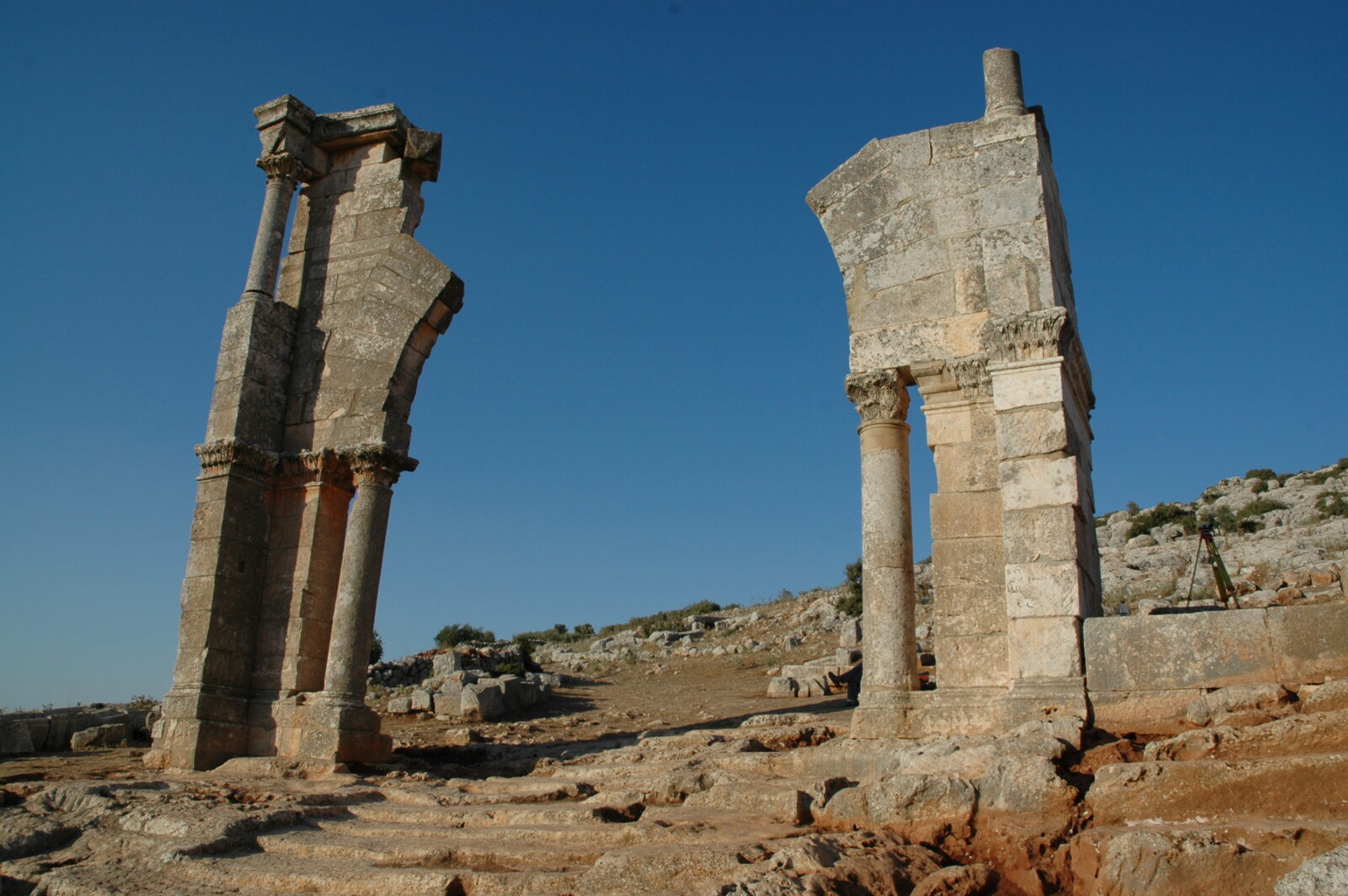
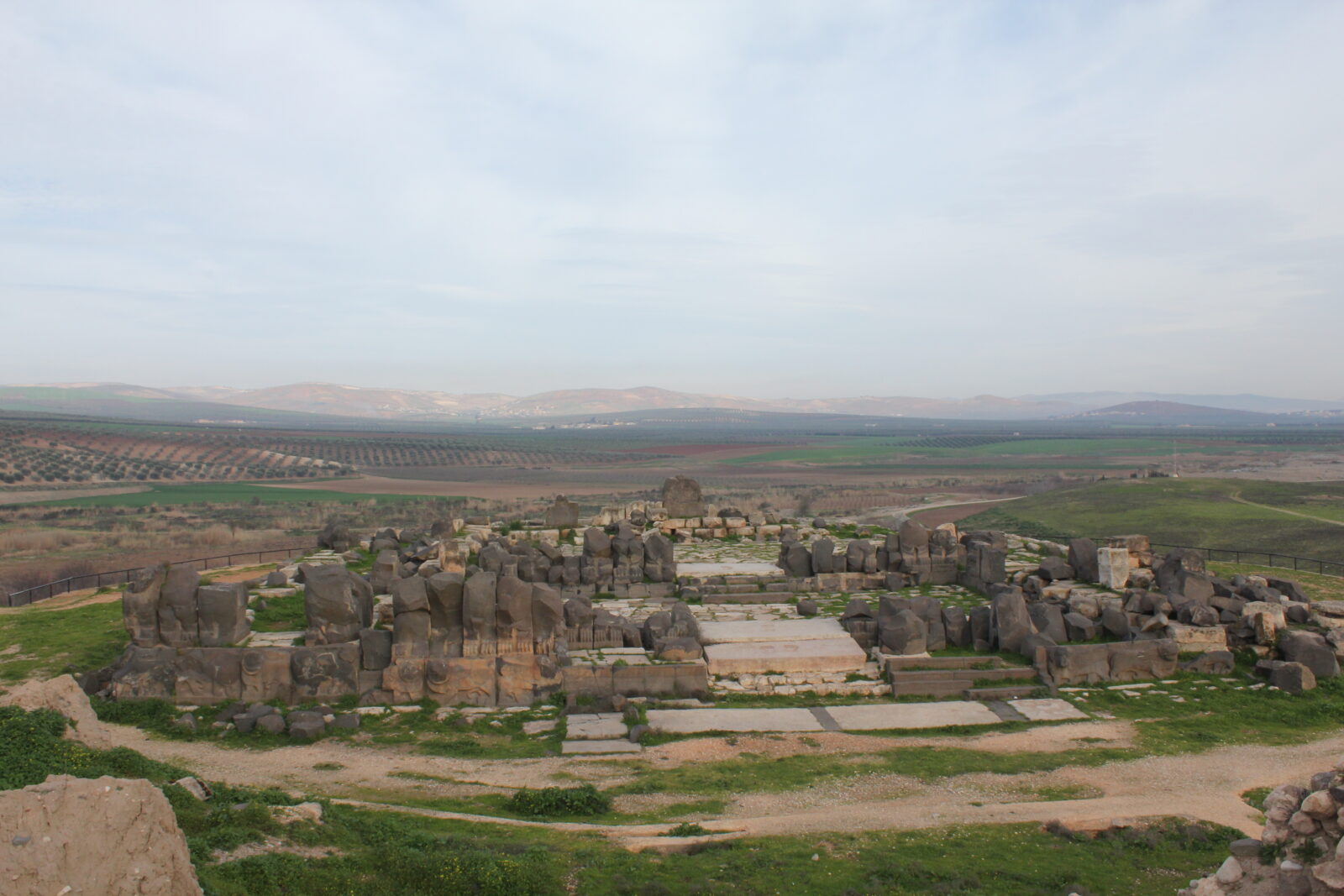
Restoration efforts must be conducted to the highest standards. If done poorly, we risk losing elements of our heritage that have survived the war. Achieving this requires specialized expertise and significant international support. Only through a collaborative effort can we ensure the proper restoration and preservation of Syria’s invaluable cultural and historical assets.
5. How do you envision the future of Syria’s cultural heritage? What can be done to rebuild and protect it moving forward?
The future of Syria’s cultural heritage is deeply intertwined with the future of the country itself. As Syrians, we have great hope for a brighter and better future for Syria. Over the past 50 years, however, there has been little progress in the preservation or evolution of Syrian heritage. Under the Assad regime, there were no comprehensive plans, genuine interest, or meaningful support for the country’s cultural heritage.
Looking ahead, I believe there will be greater collaboration between Syrians and international organizations to rebuild and protect our heritage. The first and most crucial step in this process is enabling Syrians to return to their homeland. Many skilled professionals and experts in cultural heritage are currently outside Syria, and their involvement will be essential for any successful restoration effort.
It is also vital to raise awareness within the Syrian community about the importance of our heritage. People must understand that our cultural heritage belongs to all Syrians, not to the Assad family or any regime. Misconceptions like this have contributed to the destruction of archaeological sites, as some Syrians targeted heritage sites believing they were tied to the regime.
By fostering a sense of shared ownership and pride in our heritage, alongside international collaboration and the return of skilled professionals, we can rebuild and safeguard Syria’s invaluable cultural and historical assets for future generations.
6. Are you still based in Syria? If not, do you plan to return in the future?
Since 2013, I have been living outside Syria. I worked in Japan for three years, followed by a position at the University of Tübingen in Germany. Throughout this time, my focus has remained unwavering: working to safeguard Syria’s cultural heritage for future generations.
Despite being far from home, I have continued to contribute to preserving and documenting Syrian heritage, collaborating with international teams and organizations. My goal has always been to protect what remains and prepare for the eventual restoration of our cultural sites.
I fully intend to return to Syria as soon as possible to take part in the rebuilding process and contribute directly to preserving our history and identity for the next generation.
In conclusion, while Syria’s cultural heritage has suffered immense damage because of the ongoing war, there is hope for restoration and preservation in the future. Efforts to document and protect the remaining cultural assets, along with international collaboration, are essential.
The involvement of skilled professionals, both within Syria and abroad, and raising awareness among the Syrian people about the importance of their heritage will be crucial in rebuilding and safeguarding Syria’s invaluable cultural and historical treasures for future generations.



